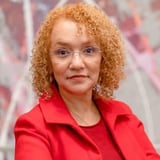Summary
Product teams, including those I work with, struggle to overcome the grinding momentum of product delivery timelines to make room for adequate discovery, learning, and application through research. The game of product development becomes fiercer when it's not the first time, but the fourth team assembled to tackle a complex product space. In well-trod territory, strong opinions may abound, and talking past each other and rehashing approaches is rampant. Challenges that face researchers as partners in product development include establishing a sense of shared team vision, separating facts from fiction, and moving the team past hang-ups to establish a research strategy and product direction. This case introduces the idea of "grinding momentum" and outlines a stakeholder engagement process known as a FOG session that helps all team members across functional expertise areas claim voice, hear others, and share in collective aha moments that define next steps. Using a mixed-methods approach, a process is outlined to frameshift the value of existing knowledge spanning many departments within an organization, bring together distinct expertise vocabularies and analyses, and propel product partners to identify true knowledge gaps.
Key Insights
-
•
Research is often perceived as slow but actually enables faster product velocity by clarifying decisions.
-
•
Daniel Kahneman’s System 1 (intuitive) and System 2 (analytical) thinking both complement each other in decision-making.
-
•
Expert intuition requires regularity, practice, and immediate feedback to be reliable, conditions rarely met in novel product contexts.
-
•
Organizations mature in information processing by adding departments: starting with intuition (product teams), then data, and finally research teams for deeper analysis.
-
•
Product teams often over-rely on intuitive thinking, leading to overconfidence and misalignment.
-
•
Grinding momentum is a shared team pressure to move fast without adequate foundational knowledge, risking poor decisions.
-
•
The FOG method (Facts, Opinions, Guesses) helps teams slow down, separate evidence from assumptions, and surface knowledge gaps.
-
•
Facilitated FOG sessions enable democratic participation, uncover tensions, and establish shared mental models for product direction.
-
•
Research should be positioned as a partner in knowledge creation rather than an arbiter of absolute truth, shifting power dynamics.
-
•
Dealing with bad data or assumed facts requires active researcher intervention to analyze artifacts and reframe discussions constructively.
Notable Quotes
"Slowing down with research can help us move faster overall."
"Intuition is knowing without knowing how you know, I just know it."
"Expert intuition can be right or wrong because it relies on cues and heuristics in uncertain contexts."
"Research is the most analytical form of information processing because it involves active knowledge generation."
"Most product decisions look intuitive, but intuition alone leads to coherent stories that can be wrong."
"Research is sometimes perceived as intuitive and therefore dismissed as insufficient for decision-making."
"Grinding momentum is a shared mental model that pushes teams to decide quickly without shared foundational knowledge."
"The FOG method helps teams separate facts from fiction and move past hangups toward alignment."
"The goal is to turn research into a partner in shared discovery, not just an arbiter of truth."
"If a stakeholder claims something is a fact without evidence, it is our responsibility as researchers to challenge and unpack that."
Or choose a question:
















More Videos

"Don’t get stuck in the refinement stage too early."
Billy CarlsonIdeation tips for Product Managers
December 6, 2022

"Simpler interfaces on mobile are an accessibility win for users with ADHD or cognitive challenges."
Sam ProulxMobile Accessibility: Why Moving Accessibility Beyond the Desktop is Critical in a Mobile-first World
November 17, 2022

"When systems fail, Jigad works best within a framework — innovation that must scale happens with an ecosystem view."
Dan WillisEnterprise Storytelling Sessions
May 13, 2015

"We are outnumbered by engineers maybe a dozen to one, but things are improving all around."
Michael PolivkaScaling Design through Relationship Maps
November 7, 2017

"Natural language processing is basically about figuring out how to math words."
Karen McGrane Jeff EatonAI for Information Architects: Are the robots coming for our jobs?
November 21, 2024

"When negotiating, bring plan A—show what you need and what good looks like—even if it seems outrageous."
Leisa ReicheltOpening Keynote: Operating in Context
November 7, 2018

"If you find someone not following values, start with a one-on-one to understand their point of view and realign together."
Kim Holt Emma Wylds Pearl Koppenhaver Maisee XiongA Salesforce Panel Discussion on Values-Driven DesignOps
September 8, 2022

"We haven’t just invited them, we’ve set the damn table, and sometimes we have to host the damn party."
Jacqui Frey Alison RandSetting the Table for Dynamic Change
October 24, 2019
"If you think about things this way, that’s when you actually become the CEO of the experience."
How to Identify and Increase your "Experience Quotient"
June 15, 2018
Latest Books All books
Dig deeper with the Rosenbot
How can organizations democratize accessibility knowledge among designers, developers, and researchers?
Why do private sector innovation models often fail when applied directly to public sector organizations?
What practical practices can make accessibility a sustainable part of daily design and development workflows?
















